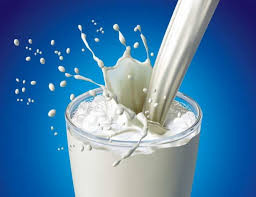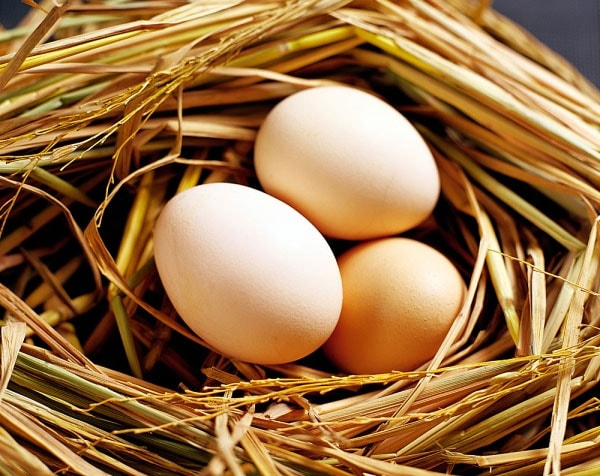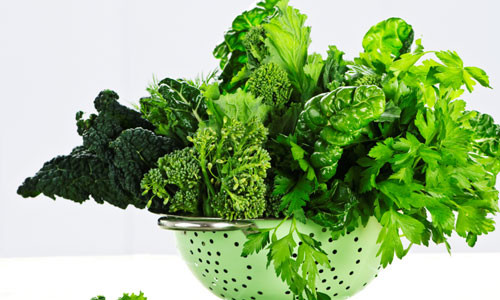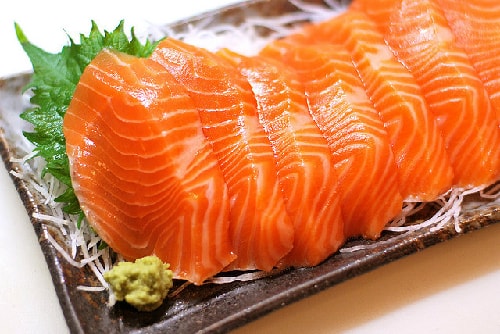7 foods to help your baby be smart from the womb
As parents, everyone wants their children to be healthy, develop comprehensively, and grow taller and smarter every day. To achieve that, you need to have a careful and scientific process of caring for and educating your children, in which a complete and balanced diet plays an extremely important role. 7 types of food that help your children become smarter every day are as follows:
Drinking milk every day helps children become smarter
– The concept of “milk” here includes breast milk and formula milk, which is the first, important and extremely necessary source of nutrition for the comprehensive development of young children.
– In breast milk, there is a very rich content of DHA and ARA which are the foundation of brain tissue, the main components of the gray matter and retina of the baby's brain. However, for the baby to be able to absorb the necessary and sufficient amount of DHA, the mother's diet during pregnancy and breastfeeding needs to be complete and balanced in nutrition to ensure the best milk supply for the baby.
 |
| Milk is a great source of nutrients for pregnant mothers. Photo: internet |
– In the first 6 months, you should breastfeed your baby completely and then gradually introduce formula milk, which is also a rich source of DHA for young children. Based on the nutritional content of breast milk, manufacturers of powdered milk and baby food have added DHA to their products, along with another fatty acid, ARA, which is essential for the intellectual development of children when breast milk no longer provides enough nutrients for the baby after the first 6 months.
Eggs are food that helps children become smarter.
– Chicken eggs are foods rich in protein, vitamins and minerals that are essential for children's development. In addition, eggs are also rich in DHA and lecithin, which not only promote the development of the nervous system and body, but can also energize the brain to develop more healthily. In addition, egg yolks also contain choline, which is very beneficial for children's memory.
 |
| Chicken eggs - indispensable food during pregnancy. |
– Therefore, parents need to add more chicken eggs to their baby's diet, preferably in the morning, make sure to cook them thoroughly and only give each baby 2-3 chicken eggs per week.
– In particular, you need to note that, to ensure safety, you should only feed your baby chicken eggs after 9 months of age and you should only feed your baby local chicken eggs. Tam Hoang chicken eggs are much better than industrial chicken eggs.
Cereals
– Cereals contain a large amount of vitamins A, B and C to help nourish cells and the nervous system. In addition, cereals also contain iron and zinc, which not only reduce the risk of obesity but also supplement and enhance children's physical development.
– In particular, this is also a source of energy (glucose) necessary for brain activity. The fiber in cereals will help regulate the amount of glucose in the body, creating conditions for the baby's body to develop in a balanced and comprehensive way. Therefore, mothers should not forget to add cereals to their children's daily diet. It is best to feed your baby in the morning to provide energy for your baby to be active all day.
Beans, peas, green vegetables
– Beans (beans, peas) are foods that contain large amounts of protein, vitamins, minerals, starch and fiber, providing energy, helping your baby to be healthier and smarter every day.
– Green vegetables are a source of a large amount of natural vitamins, abundant fiber and are very useful for the development of children's brains. However, mothers should not only feed their children a few fixed types of vegetables and fruits, but instead should choose a variety of vegetables to stimulate their children's appetite and provide a diverse, abundant source of vitamins, sufficient for the physical and mental development of children. At the same time, mothers should pay attention to supplementing vegetables for children right in the first meals so that children get used to the taste of vegetables and are not "afraid" to eat vegetables later.
 |
– Vegetables that mothers can feed their children regularly, in rotation, include tomatoes, eggplant, pumpkin, carrots, sweet peppers, corn… not only are they a rich source of vitamins and fiber, but these foods also contain large amounts of antioxidants, which effectively restore damaged cells in children's brains.
Beef is good food for children's brain development.
– Mainly lean beef, this food contains a large amount of iron and zinc, which strengthens the brain and helps children concentrate more easily and improve memory effectively. Therefore, beef is even more necessary for children of school age.
– With beef, you can prepare many diverse dishes for your baby to stimulate the appetite, help your baby eat better, absorb nutrients better including porridge, soup, stew, beef stew, beef steak, stir-fried beef, etc.
Foods rich in omega
– Omega-3 unsaturated fatty acids are very important for the development of children's intelligence. Foods rich in omega-3 contain phosphorus and omega-3 fatty acids necessary for the effective functioning of the brain. These miraculous acids ease the process of transmitting nerve signals between brain neurons, and are necessary for the formation of nerve cells. Thanks to that, the attention, memory, and concentration of children gradually develop more and more completely.
 |
| Salmon - a food rich in omega that enhances intelligence for children in the womb. |
– Foods rich in omega 3 that you need to add to your baby's daily menu include: salmon, nuts, walnuts, cabbage, tofu, etc.
Iodine is a nutrient that helps babies become smarter.
Iodine is a nutrient that has a special meaning and plays an important role in the intellectual development of children. You can give your child iodine every day according to the doctor's instructions or you can simply add salt to your child's food. However, you need to give your child iodine in the right amount, if your child eats too much salt it will lead to retention, edema, heart disorders and many other dangerous diseases.
The safe amount of salt for your baby's body according to age will be calculated as follows:
– Children 1-3 years old: 1.5g/day;
– Children 4-8 years old: 1.9g/day;
– Children 9-13 years old: 2.2g/day;
– Children 14-18 years old: 2.3g/day.
When you feed your baby solid foods at 1 month old, you should not add salt or other spices.
According to VNN

.jpg)




.jpg)

